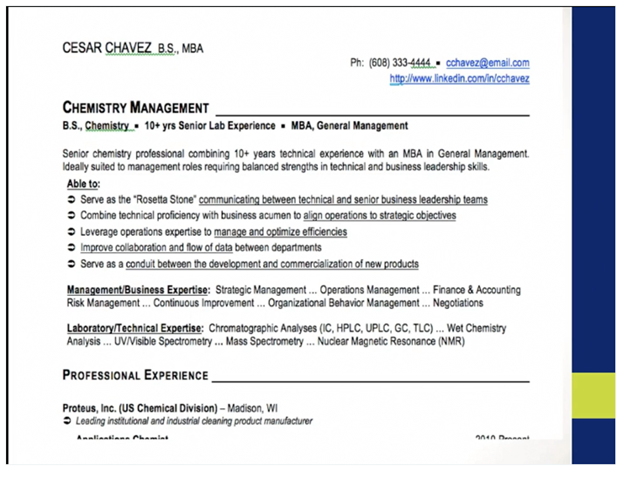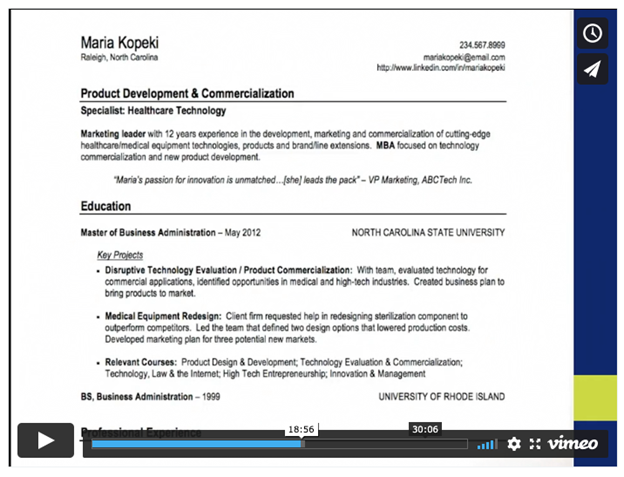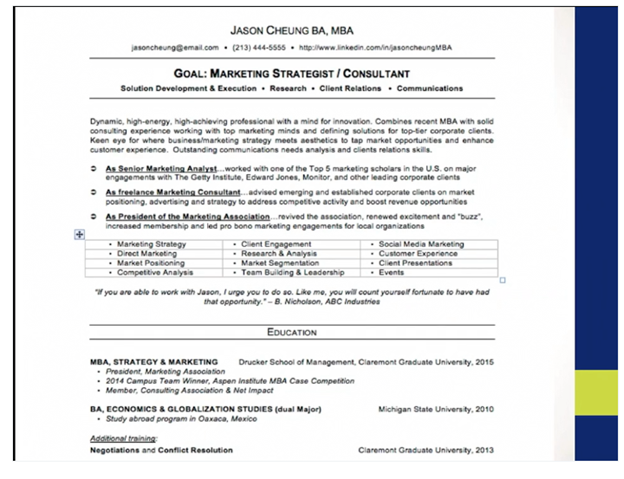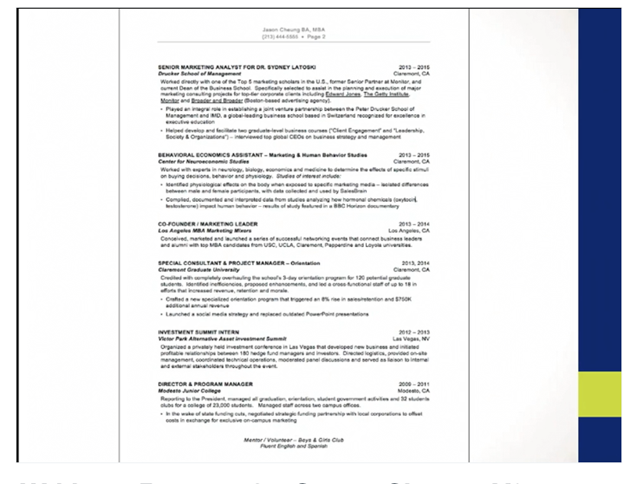
Writing A Resume For Career Change
with Ross Macpherson, President, Career Quest
Making a career shift is one of the toughest/tricky moves to make. Ross Macpherson, shares the different strategies in this video on how to be successful in your career change by building a strong resume.
He starts by providing the different things to AVOID so as to prevent being ignored by employers/recruiters:
- Avoid using the existing resume format where the order is chronological beginning with the job you are currently doing. When changing careers, providing information that is not relevant to the new field being pursued will not work. Create a specific/specialized resume.
- Do not use a functional format resume where it breaks the chronological format and makes use of skills to group experiences/job experience. This does not have any direct relevance to the new field of interest.
- Do not sound or show in the resume that you are apologetic in making a career shift. The content of your resume has to be strong and convincing.
- Avoid using technical terms or jargons that does not apply to the new field being pursued. It creates a disconnect with the recruiters and they will ignore the resume.
- Avoid leaving the employer/recruiter to figure out how to read and understand your resume. The content should be applicable and comprehensible.
To stand out and become a strong contender in the new field of venture, Ross provides the DO’s and other great tips in creating a solid resume:
- Do your research and know very well the new field you want to shift to. Match it to what you are currently doing and lay it down in your resume.
- Evaluate your skills and projects and make it relevant. Indicate what you can do to contribute as a value ad to the success of the new role you want to get into.
- Leverage past experiences that can help you be successful in the role you want to transition to.
- Front-load your resume. Use your skills, experiences, projects, education that proves your suitability to the new role.
- Review the layout of your resume to make sure it is relevant to the new role.
More powerful tips include:
- It is important to build a powerful profile that relates to the new field/role and aspirational that tells the employer what you plan to do and where you are going.
- Highlight your strengths, accomplishments, skills/projects and education.
- Consider a 1-page resume which focuses on the new job on top and summary of previous experience at the bottom.
- Give information on what you CAN do/offer as you move into a new role vs focusing only on what you have done.
- Add relatable titles and use strong words such as “Ideally suited to, ideally positioned to.” Examples are: Ideally suited to provide inputs into creating a marketing plan; ideally positioned to contribute to market branding/re-branding; ideally suited to take on a management role. Use of language to showcase what you can do in the new role.
- Lastly, when writing your accomplishments, start with the most relevant.
Examples presented by Ross and illustrations:
- First example illustrates a resume where the candidate does not have any experience at all. The example uses relatable title and highlights what the candidate CAN do in the new field/for the employer. The language used can be understood by the employer and can connect the dots. After 6 weeks, the candidate got a job offer after 6 weeks.

- The second example talks about front-loading your resume with relevant qualifications. – relatable skills and education. The illustration even includes a powerful quote that can catch the attention of the employer/recruiter. See below:

- The third example is a resume of a candidate that has no experience at all in the new field being pursued. The candidate’s experience is in Economics and plans to move to Marketing. The illustration shows that the resume is top-loaded with relatable experiences , initiatives, activities and aspirations. Include education as part of the first page and the next page can include other relevant information about you.


Ross Macpherson is the President of Career Quest, a Certified Personal Branding Strategist, Certified Online Identity Strategist, Certified Interview and Job Search Coach, and is recognized as one of the best resume writers in North America. With over 15 years experience in the career industry, he specializes in advanced strategies that help senior and executive professionals throughout the US, Canada, and internationally. His work has been featured in 18 career publications.
Ross routinely speaks to MBA programs across North America, and is known for delivering powerful and entertaining sessions that teach real-world success strategies. He has also spoken at major career events, global industry conferences, professional associations, and executive networking groups across the U.S. and Canada, and his high-energy style has consistently put him at the top of the career management speaking circuit. Contact Ross at [email protected]